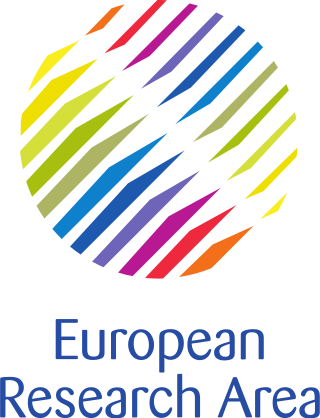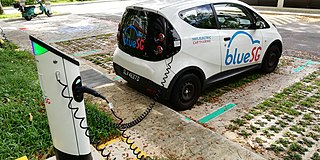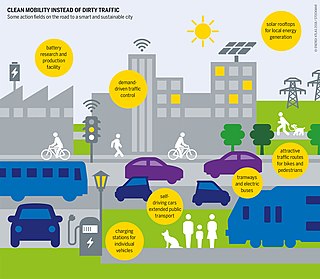Related Research Articles

Eureka is an intergovernmental organisation for research and development funding and coordination. Eureka is an open platform for international cooperation in innovation. Organisations and companies applying through Eureka programmes can access funding and support from national and regional ministries or agencies for their international R&D projects.
The VDE e. V. is a German technical-scientific association. VDE is best known for creating and maintaining standards in the field of electric safety and has a strong influence on the DIN.

The Directorate-General for Communications Networks, Content and Technology is a Directorate-General of the European Commission and is responsible for European Union investment in research, innovation and development of critical digital technologies.

The European Research Area (ERA) is a system of scientific research programs integrating the scientific resources of the European Union (EU). Since its inception in 2000, the structure has been concentrated on European cooperation in the fields of medical, environmental, industrial, and socioeconomic research. The ERA can be likened to a research and innovation equivalent of the European "common market" for goods and services. Its purpose is to increase the competitiveness of European research institutions by bringing them together and encouraging a more inclusive way of work, similar to what already exists among institutions in North America and Japan. Increased mobility of knowledge workers and deepened multilateral cooperation among research institutions among the member states of the European Union are central goals of the ERA.

Design management is a field of inquiry that uses design, strategy, project management and supply chain techniques to control a creative process, support a culture of creativity, and build a structure and organization for design. The objective of design management is to develop and maintain an efficient business environment in which an organization can achieve its strategic and mission goals through design. Design management is a comprehensive activity at all levels of business, from the discovery phase to the execution phase. "Simply put, design management is the business side of design. Design management encompasses the ongoing processes, business decisions, and strategies that enable innovation and create effectively-designed products, services, communications, environments, and brands that enhance our quality of life and provide organizational success." The discipline of design management overlaps with marketing management, operations management, and strategic management.
The Framework Programmes for Research and Technological Development, also called Framework Programmes or abbreviated FP1 to FP9, are funding programmes created by the European Union/European Commission to support and foster research in the European Research Area (ERA). Starting in 2014, the funding programmes were named Horizon.
The European Institute of Innovation and Technology (EIT) is an independent body of the European Union with juridical personality, established in 2008 intended to strengthen Europe's ability to innovate. The EIT’s three “core pillars” of activities are: entrepreneurial education programmes and courses across Europe that transform students into entrepreneurs; business creation and acceleration services that scale ideas and budding businesses; and innovation-driven research projects that turn ideas into products by connecting partners, investors, and expertise.

Clean technology, also called cleantech or climatetech, is any process, product, or service that reduces negative environmental impacts through significant energy efficiency improvements, the sustainable use of resources, or environmental protection activities. Clean technology includes a broad range of technology related to recycling, renewable energy, information technology, green transportation, electric motors, green chemistry, lighting, grey water, and more. Environmental finance is a method by which new clean technology projects can obtain financing through the generation of carbon credits. A project that is developed with concern for climate change mitigation is also known as a carbon project.

A smart city is an urban area that has been developed with a high level of technological advancement, utilising a variety of electronic methods and sensors to collect specific data. This data is then used to manage assets, resources and services in an efficient manner, with the understanding that this data will in turn be used to improve operations across the city. This data can be collected from a number of sources, including citizens, devices, buildings and assets that is processed and analyzed in order to monitor and manage traffic and transportation systems, power plants, utilities, urban forestry, water supply networks, waste disposal, criminal investigations, information systems, schools, libraries, hospitals, and other community services. The term 'smart city' is defined by two key aspects: the ways in which their local governments harness technology as well as in how they monitor, analyze, plan, and govern the city. In a smart city, the sharing of data is not confined to the municipal authority but extends to businesses, citizens and other third parties who can derive benefit from the utilisation of that data. The pooling of data from disparate systems and sectors creates opportunities for enhanced understanding and economic gain.
The European Rail Research Advisory Council (ERRAC) is a European Seventh Framework Programme initiative to improve the competitive situation of the European Union to revitalise the European rail sector.
The European Space Technology Platform (ESTP) is a European Seventh Framework Programme initiative to improve the competitive situation of the European Union in the field of space technology. It continues to work during Horizon 2020 (2014–2020).
The European Steel Technology Platform (ESTEP) is a European Seventh Framework Programme initiative to improve the competitive situation of the European Union in the field of steel technology. The main objective of the programme is to produce a Strategic Research Agenda (SRA).
The European Technology Platform (ETP) for the Electricity Networks of the Future (SmartGrids) is a European Commission initiative that aims at boosting the competitive situation of the European Union in the field of electricity networks, especially smart power grids. The ETP represents all European stakeholders. The establishment of an ETP in this field was for the first time suggested by the industrial stakeholders and the research community at the first International Conference on the Integration of Renewable Energy Sources and Distributed Energy Resources, which was held in December 2004.
The Integral SatCom Initiative (ISI) was an Information and Communications Technologies (ICT) European Technology Platform (ETP) led by the European SatCom industry and supported by the European Commission to address Satellite Communications (SatCom) strategic research and innovation challenges. It gathered approximately 200 member organisations representing all the stakeholders of the European SatCom sector from 29 different countries. It included members from manufacturing industry, network operations and service provision, SMEs, research centres and academia, European and National Institutions. Some international research entities do also participate. In 2013, after a public call by the European Commission to re-structure ETPs to better fit Horizon 2020 interests, ISI formally merged with Net!Works ETP to form NetWorld ETP, bringing together almost 1,000 partner organisations. NetWorld would become the partner ETP in the contractual public-private innovation partnership on 5G Infrastructures with the EU in December 2013.
Smart systems are systems which are able to incorporate and perform functions of sensing, actuation, and control in order to analyze a situation, based on acquired data and perform decisions in a predictive or adaptive manner, thereby performing smart actions. In most cases the Intelligence/"smartness" of the system can be attributed to autonomous operation based on closed loop control, resource management, and networking capabilities.
Europe 2020 is a 10-year strategy proposed by the European Commission on 3 March 2010 for advancement of the economy of the European Union. It aims at a "smart, sustainable, inclusive growth" with greater coordination of national and European policy. It follows the Lisbon Strategy for the period 2000–2010.

CEA-Leti is a research institute for electronics and information technologies, based in Grenoble, France. It is one of the world's largest organizations for applied research in microelectronics and nanotechnology. It is located within the CEA Grenoble center of the French Alternative Energies and Atomic Energy Commission (CEA).

The Walton Institute, formerly the Telecommunications Software & Systems Group (TSSG), is a large Irish information and communications technologies (ICT) research institute in the Waterford Institute of Technology. It is based in the WIT West Campus, having brought in the funding for the two research buildings located there: ArcLabs Research and Innovation Centre, combining the TSSG with incubation and innovation space, formally opened by the Taoiseach in October 2006, and NetLabs, formally opened by Minister of Education in March 2014.

The Clean Sky Joint Undertaking (CSJU) is a public-private partnership between the European Commission and the European aeronautics industry that coordinates and funds research activities to deliver significantly quieter and more environmentally friendly aircraft. The CSJU manages the Clean Sky Programme (CS) and the Clean Sky 2 Programme (CS2), making it Europe's foremost aeronautical research body.
Embedded intelligence is characterized as the ability of a product, process, or service to reflect on its own operational performance, usage load, or environment. The motivation for this may be to enhance the performance, lifetime, or quality of the product. This self-reflection might be facilitated by information collected via embedded sensors, and processed locally or communicated remotely for processing.
References
- ↑ "EPSI Strategic Partners". The European Platform for Sport Innovation (EPSI). Retrieved 2019-12-06.
- Interrelation between ICT ETPs
- EPoSS (speech)
- Akhras, G., "Smart Materials and Smart Systems for the Future", Canadian Military Journal, 08/2000
- Gessner, Thomas, ed. (2008). Smart systems integration 2008 : 2nd European Conference & Exhibition on Integration Issues of Miniaturized Systems - MEMS, MOEMS, ICs and Electronic Components, Barcelona, Spain, 9-10 April 2008. Berlin: VDE-Verlag. ISBN 978-3-8007-3081-0.
- Gessner, Thomas (2007). Smart system integration 2007 Paris, France 27. - 28.03.2007 ; with CD-ROM. BerlinOffenbach: VDE-Verl. ISBN 978-3-8007-3009-4.
- Gessner, Thomas (2013). Smart systems integration. BerlinOffenbach: VDE-Verl. ISBN 978-3-8007-3490-0.
- Internet-of-Things in 2020 – A roadmap for the future, 2008
- Meyer, Gereon; et al. (2018). Advanced Microsystems for Automotive Applications 2018: Smart Systems for Clean, Safe and Shared Road Vehicles. Berlin: Springer. ISBN 978-3-319-99762-9.
- Electronic Components and Systems, Strategic Research Agenda 2018 (ECS-SRA)